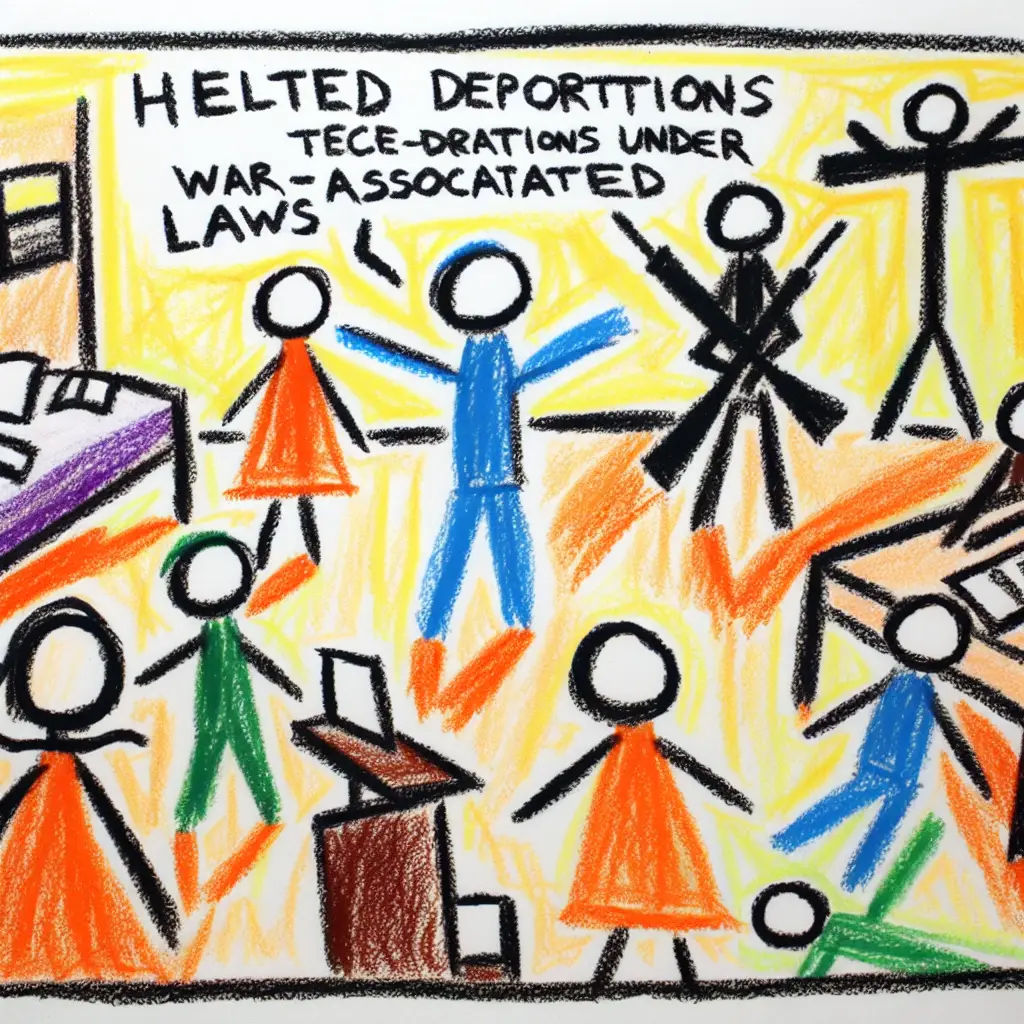Appeals Court Blocks Trump Deportations Under Wartime Law

Explain Like I'm 5
Imagine you're playing a game where you can only use a special power if there's a specific problem, like if a dragon invades your castle. Now, President Trump thought there was a problem with some people from Venezuela, and he wanted to send them back to their country using a special power from an old rule called the Alien Enemies Act. This rule is like that special power—it's only supposed to be used if another country is causing big trouble, like an invasion. But a group of judges, kind of like referees, said, "Wait a minute, there's no dragon here!" So, they told him he can’t use that special power because there’s no invasion happening. It's like telling someone they can't use their dragon-fighting sword because there's no dragon to fight.
Explain Like I'm 10
President Trump wanted to send some people from Venezuela back to their country because he thought they were causing problems here. To do this, he used an old rule called the Alien Enemies Act. This rule lets the president do things like that but only in very serious situations, like if another country is attacking us. But here’s the catch: there was no actual attack or invasion from Venezuela.
A group of judges, which is like a team checking the rules, looked at this and said, “Nope, you can’t do that.” They decided 2-to-1, which means two judges thought it was wrong and one thought it was okay, that President Trump can't use this rule because there's no invasion. They’re like umpires in a game, making sure everyone plays fair according to the rules. This decision is important because it tells the president that he can't use certain powers unless there's a real, big emergency.
Explain Like I'm 15
President Trump invoked a very old wartime law, the Alien Enemies Act, to deport people he claimed were Venezuelan gang members. This law is from way back in 1798 and it gives the president the authority to take action against nationals from a hostile nation during times of war or invasion. However, the situation here didn’t really fit those criteria—there wasn’t an actual invasion or war with Venezuela.
A federal appeals court had to step in and assess whether Trump’s use of this law was legitimate. In a 2-to-1 decision, the court ruled that the conditions (an invasion or declared war) needed to trigger this law weren't met, so Trump's action was blocked. This case is a significant example of how checks and balances work in the U.S. government; even the president's actions are subject to judicial review to ensure they align with the law and the Constitution.
This ruling not only stops these specific deportations but also sets a precedent about the limits of presidential powers, especially concerning how laws related to national security are interpreted and implemented. It also reflects the ongoing debate over immigration policy and executive authority, which are hot topics in U.S. politics. Looking ahead, this could lead to more clarity on how such wartime laws can be applied, or it might prompt changes to the laws themselves to prevent similar issues in the future.
Want to read the original story?
View Original Source